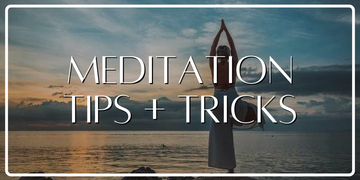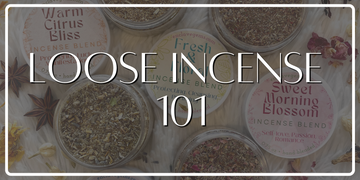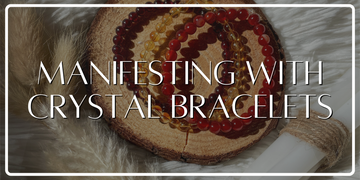Meditation is to date one of the most well-known mindfulness practices, utilized for its mental, physical, and spiritual benefits. For centuries, meditation, or the practice of training your brain to be focused and mindful, has been used through a variety of cultures and religions in several methods. Each technique provides advantages to aid the healing of the body, mind, and spirit, and the practice is still used frequently today. Psychological and medical research has shown that those who suffer from, “an array of conditions” such as PTSD, anxiety, and irritable bowel syndrome have seen notable improvements through meditation [1]. Meditation can be conducted through both self-led and guided methods, and there is a plethora of meditation enhancers that utilize your senses to stimulate relaxation and focus.
The benefits of meditation are seemingly endless. This is because meditation altars your perception of pain and pleasure, which play a major part in physical, emotional, and spiritual ailments. Research suggests that practicing meditation long term reduces our pain and makes symptoms easier to deal with [2]. Additionally, daily meditation has been shown to strengthen our overall immune system functionality [3]. Other physical concerns such as circulation, cardiovascular health, problems, and flexibility can also be improved by regularly meditation. The best part – these improvements are here to stay! As long as you keep up with your mindfulness routines, you will continually see these improvements to your physical health.
Meditation has a huge impact on mental ailments as well. This includes emotional stability, mental health, and brain functionality. Meditation goes a long way for those who have trouble sleeping due to anxiety, insomnia, stress, and restlessness. This is because meditation allows us to be better equip for everyday life stresses through the day and calming our brains at night. These mindfulness practices change rising hormonal issues and inflammatory levels related to stress in order to soothe your mind [4]. By extension, reduced stress can alleviate symptoms of depression, issues with self-image, controlling our emotions, and much more. Besides stress reduction, meditation can also help us focus and enhance creativity, by improving our ability to concentrate [5].
Meditation can be facilitated in numerous ways. For beginners, a common method of meditation is ‘guided’ which means it is carried out by another person, or a guide. This can be done live during a class or a one-on-one session, or through a recording such as an app on video. Using a guide for your session is good for restless minds that are not yet use to slowing down, allowing you to embrace the benefits of meditation without feeling overwhelmed. However, the limitations of guided meditation, such as lack of control over the focus of your meditation, lack of silence, and difficulty remaining in a deep meditative state, are not worth the appeal to more novice meditators. When you are in complete control of your session, you are able to be more intuitive during the process, which aids mind/body/spirit connection and ensures you are focusing on areas that are most important to you. Additionally, it is good for people that don’t want to or are unable to use technology.
The actual process of meditation is quite simple. Since the goal is to focus your mind on a specific desire, goal, or state of mind, you must be in a quiet and comfortable space. You can either sit or lay down, with eyes closed, and ensure you are in a stable position. Once you are in a satisfying position, you can begin to attune your mind towards your goal. If you are being guided, make sure you have an appropriate amount of time allotted to this endeavor, typically 5-30 minutes, and follow along with the instructions. If you are leading yourself during this process, you can use specific methods such as focusing on your breathing patterns, repeating mantras in your head, or allowing your mind to go to a specific, calming area. Each method has its own set of benefits, for example mantra repetition can be good for those struggling with self-love, since you can focus your phrases on accepting yourself. Visualizing can be useful to anyone desires a specific desire, such as financial success, to better manifest these intentions. Once you’ve finished with meditating, it is good to reflect upon your session, especially regarding any realizations or progress you have made. Be sure to try out a variety of mindfulness techniques to get a better understanding of your mind’s desires and meditation in general.
Anyone interested in the practice of meditation, from beginners to expert to guides, should utilize the power of our human senses into their sessions. Life is experienced through the senses, and our brains can enter different, and deeper, states of mind when we use them. One of the most common ways this is done during meditation is through sound. Sound healing through singing bowls, chimes, tuning forks, and more can facilitate deeper meditative states for enhanced healing. Click here for an in-depth article on sound healing + information on our sound bath classes! Other methods of sound include repeating mantras out loud, listening to specific frequencies and of course, guided meditation.
Another common sense that is used to enhance meditation utilizes our sense of smell. Aromatherapy is a great way to further the healing benefits of mindfulness practices. This can be done by lighting incense or candles, using an essential oil diffuser, burning sage, and much more. Using fragrance has been proven to relieve symptoms of a variety of different physical and mental ailments, so incorporating scent in your practice can further specific healing goals. Click here to learn more about the power of aromatherapy and 8 different scents you can incorporate them into your sessions. Like scent, our sense of taste can stimulate our minds during meditation as well. Drinking tea or smoking inhalant-safe herbs are a great way to use this scent throughout your practice. Be sure to check out our Herb Page and Herbs 101 Article to figure out the best one for you.
Finally, the act of touch can lead to better and deeper meditative state of mind. You can use practically any physical object depending on your goal, but specific items such as crystals and spell jars are perfect for anyone wanting to utilize specific vibrations. From tumbled stones to palm stones to pointed towers, crystal types and shapes can be a game changer for any level of meditator. If you’re unsure what to get, check out or Crystal Color & Shape Basics to guide your choices. The act of touching, wearing, or simply keeping crystals close to you during meditation can be extremely beneficial for balancing your chakras. Whether under or overactive, attuning each chakra to its accurate frequency can heal mental and emotional wounds, and aid physical healing processes. Additionally, meditating with high frequency crystals can connect you to your spirit guides and help you reach a higher state of consciousness. These same benefits can also occur through holding Spell Jars, which carry with them focused energy using the power of crystals and herbs. Make sure to try out these methods to strengthen your meditative abilities.










